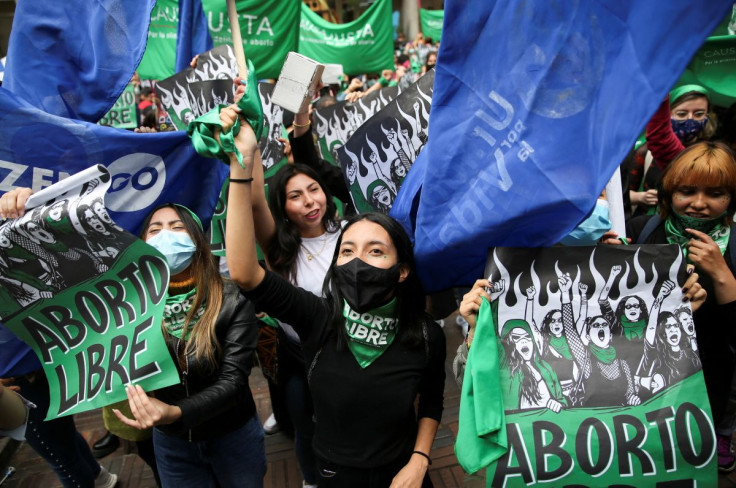Top Colombia Court Rules To Decriminalize Abortion Until 24 Weeks Gestation

Judges on Colombia's constitutional court voted on Monday to decriminalize abortion until 24 weeks of gestation, the court said in a statement, in a victory for abortion rights groups which sued to have the procedure removed from the penal code.
Abortion was partially legalized in Colombia under a 2006 court decision which allowed it only in cases of rape, fatal fetal deformity and health of the woman, without any time limits.
Under Monday's ruling - the conclusion of a long legal battle - women will not be prosecuted for seeking abortions up to 6 months of gestation, after which the procedure will only be allowed under the original three conditions.
"The practice of abortion will only be punishable when it is conducted after the twenty-fourth week of gestation and, in all cases, this time limit will not apply to the three conditions laid out in Ruling C-355 of 2006," the court said in a statement.
The Causa Justa coalition, one of the country's leading abortion rights groups, estimates around 90% of abortions in the country take place clandestinely, putting women's lives at risk as they seek dangerous alternatives to seeing a doctor. "We did it!" said the coalition, which is made up of more than 90 feminist organizations, on its Twitter account. It sued for the decriminalization of abortion in September 2020.
The coalition added prosecutions of women and girls who sought or obtained abortions have worsened stigma and scared doctors and patients, even in cases when one of the three legal conditions has applied.
Some 350 women were convicted or sanctioned for abortions between the original 2006 ruling and mid-2019, including at least 80 girls under the age of 18, according to Causa Justa.
A ruling on the suit had originally been expected late last year, but the decision has been repeatedly delayed amid recusal requests from a judge and other drawn-out procedural debates.
Removing the threat of potential prosecution will mean women - especially in rural and poor areas - can seek safe abortions, Causa Justa's suit argued.
It will reduce deaths from clandestine procedures, save the under-funded health system money, end expensive prosecutions and guarantee women's bodily autonomy, the group said.
"We don't want either legal or clandestine abortion," said Daniela Clavijo, who was protesting outside the court with anti-abortion groups before the ruling. "We are asking the court to totally penalize abortion, so there's never any condition for abortion."
Abortion is freely available in Argentina and Uruguay under certain time limits, while Mexico's Supreme Court decriminalized it last year.
Ecuador's National Assembly last week approved regulations to allow access to abortion in cases of rape, while incoming Chilean President Gabriel Boric has vowed to make the procedure freely available.
© Copyright Thomson Reuters {{Year}}. All rights reserved.





















